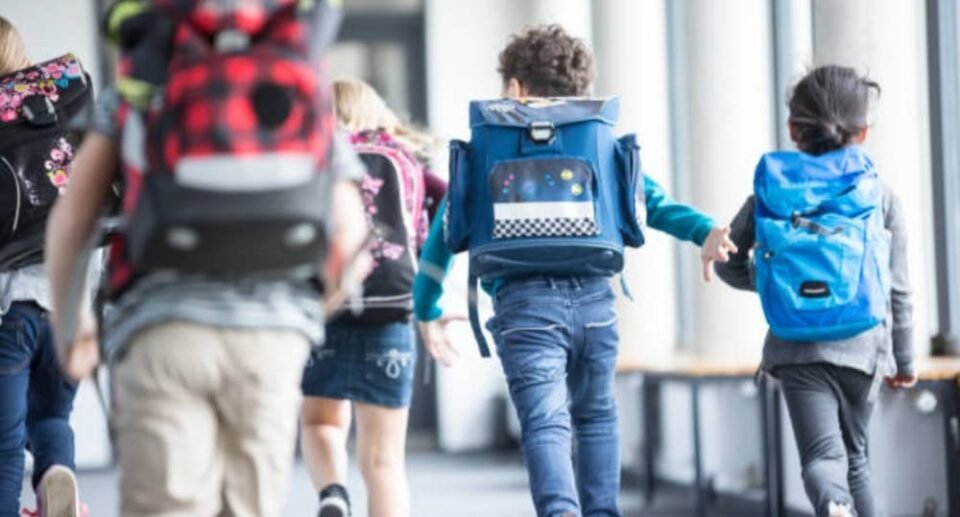Why Do Kids Hate School?

When I was in fifth grade, I used to dread Monday mornings. I used to feel frustrated of the idea of assessing what I hadn’t prepared for a math test. My fellow classmates were talking about their weekend plans, and here I was stuck in a never ending cycle of assignments and what else. Thousands of kids feel this way and it causes fear rather than part of growing up and learning.
There are a few reasons kids may feel like this. They face academic pressure to perform well and do better than others. This is the first step to recognizing these challenges for parents and teachers looking to create a more positive school experience for all children. So, let’s jump into this blog to explore more why do kids hate school?
Factors Contributing to Kids Hate School
Here are the following reasons of disliking the school that parents should know:
Academic Pressure
Kids hate school because they set high expectations from parents and teachers cause many kids to feel overwhelmed and anxious. The frequent talk about the tests can put students in a state of constant anxiety, as they fear that if they do poorly, the results will have negative impacts. For example, a middle school student might lie awake at night studying for a test, worried about scores with bad numbers on the end of them could put an end to their future prospects. These demands may turn the process of learning into a chore instead of an interesting experience.
Lack of Engagement
If the teaching methods don’t interact with students can result in disengagement. For instance, if a student doesn’t get how something like algebra relates to reality, they might feel like what’s the point? Engaging, experiential learning opportunities can create a concrete connection to the material.
Social Challenges
The start of the school year can present unique challenges for students with ADHD, dyslexia and other learning differences in traditional classroom settings. They can have trouble with attention, organization or processing things as quickly as their peers. When they feel frustrated and disengaged when they do not have enough support and resources. For instance, a student who has dyslexia may struggle with reading assignments, which can lead to a dislike of reading-heavy subjects. Schools are obligated to offer individualized support to ensure that all students can thrive.
Learning Differences
The start of the school year can present unique challenges for students with ADHD, dyslexia and other learning differences in traditional classroom settings. They can have trouble with attention, organization or processing things as quickly as their peers. When they feel frustrated and disengaged when they do not have enough support and resources. For instance, a student who has dyslexia may struggle with reading assignments, which can lead to a dislike of reading-heavy subjects. Schools are obligated to offer individualized support to ensure that all students can thrive.
Teacher-Student Dynamics
A child’s attitude toward school can be shaped by the relationship they have with their teachers. it can be a main reaons of Kids hate school. Frequent offense may stem from differences in values or style — or a loss of fairness. If a student feels that a teacher is too strict or does not understand their needs, they might become disillusioned with learning. These issues may seem overwhelming, but fostering open communication and healthy relationships can lay the foundation for students who feel valued and heard.
External Factors
There are external factors that can affect a child’s performance and opinion of school. Challenges like family stress or a lack of funds at home can create a toxic atmosphere for students pulls them away from learning. Adding on too many activities on top of school can create burnout. As they get older, smartphones and social media are looming technology distractions that can get in the way of focus and homework completion. Many students are still readjusting to changes in their learning environments. Fortunately, addressing these external factors are key to improving kids’ overall school experiences.
Solutions to Enhance Interest in School
! Here’s a list of practical and creative solutions to enhance interest in school for students:
Ease Academic Stress
Helping students develop a growth mind-set can be a game changer in addressing academic pressure. Reminding students to see challenges as growth opportunities rather than threats reduces anxiety. Schools can instead focus on ongoing assessments that describe student’s progress over time. When a culture is promoted where effort is valued, and mistakes are seen as a learning opportunity, students feel comfortable and more invested in their own education.
Boost Engagement
Interactive lessons/projects can increase student engagement. Incorporating hands-on activities, group projects and real-life application of subjects into lessons can also make things more interesting for students, teachers said. Instead of giving a traditional lecture about ecosystems, for example, students might work in teams to develop a small garden that incorporates what they learned. This method not only makes learning fun, but helps students remember more.
Improve Social Climate
A positive social climate is key to student well-being. In terms of specific programming, anti-bullying programs and social-emotional learning integrated throughout the curriculum are both important. Schools can offer workshops that teach empathy, conflict resolution and communication skills and help students build more connections with peers. A safe environment helps the students to get comfortable at school and be active at school.
Support Diverse Learners
Provide Individualized Education Programs (IEPs), schools must offer inclusivity-focused teacher training. Removing barriers for students who learn differently is a first step, but providing teachers the tools they need is equally important. We can state that accessibility can entail using technology that meets different learning styles. Audiobooks is a great way for students with dyslexia to engage with reading material.
Build Strong Relationships
Student involvement can be affected by a focus on building relationships between teachers and students. Schools need to promote strategies for open communication about what students are worried about and what they need. Mentorship programs also connect students with adults who guide and support them through both academic and social challenges. When students feel that connection to their teachers, they are much more likely to flourish in a school setting.
Parental Involvement
As a parent, you can play a role in ensuring your child has time for both academic and leisure activities. Whether you have sole or joint parent custody, creating boundaries around technology usage can help minimize distractions and encourage children to focus on their studies. Parents can also collaborate with schools to cultivate a positive attitude towards education at home, regardless of the custody arrangement.
Final Thoughts
Addressing academic pressure, enhancing engagement and supporting diverse learners are important for building interest in school. Nowadays schools are increasingly adaptable, fostering supportive environments for all students. Share your experience with use or subscribe for updates on educational strategies and insights.
FAQs
What are signs of school anxiety?
How can I make school more engaging?
What are alternatives to traditional schooling?

Aashley Kai is the Editorial Director of Chelsea Famous Parenting and a licensed expert in early childhood education. She holds a Master’s in Child Psychology from the University of Texas Southwestern Medical Center and has worked as a preschool teacher and child therapist. Since joining in 2024, Aashley has been dedicated to creating well-researched, trustworthy parenting resources. Her work helps parents and caregivers foster nurturing, educational environments for children. Outside of work, she enjoys hiking and photography, capturing nature from a child’s perspective.





